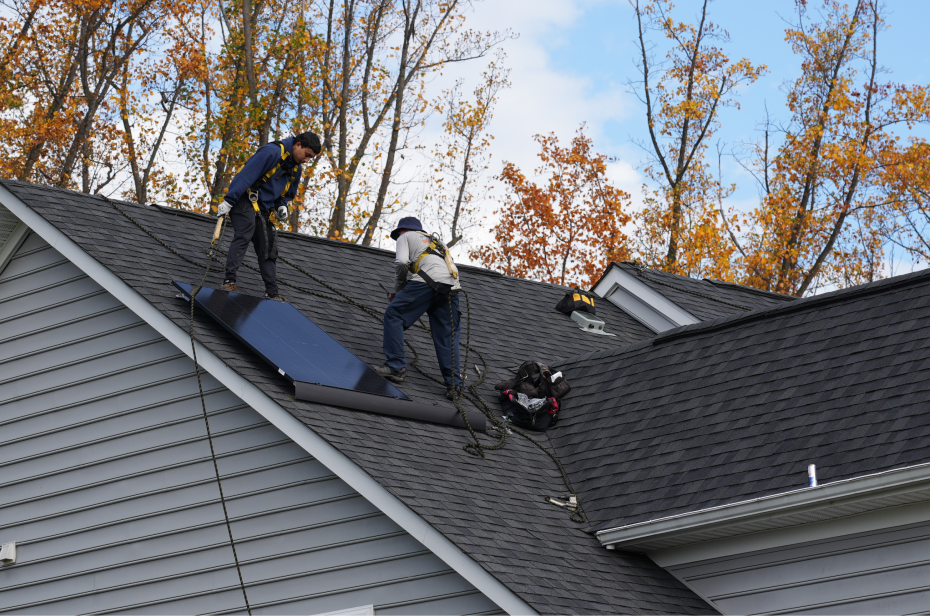Article
How Solar Panels Affect Home Insurance

As more homeowners consider installing solar panels, many wonder how these energy-saving additions might impact their home insurance. Solar panels can increase property value, reduce energy costs, and contribute to environmental sustainability. But with these benefits come questions about insurance coverage, premiums, and potential liabilities. In this guide, we’ll explore how solar panels affect home insurance policies, premiums, and what homeowners should discuss with their insurance providers to ensure proper coverage.
Understanding Solar Panels and Their Impact on Your Property
Solar panels capture sunlight and convert it into electricity, allowing homeowners to generate renewable energy and potentially reduce energy bills. This eco-friendly solution is rapidly gaining popularity, and for good reasons:
- Energy Savings: Solar panels offer long-term savings by offsetting utility costs.
- Environmental Impact: Solar energy reduces a home’s carbon footprint.
- Increased Property Value: Solar panels can make a property more appealing, potentially increasing its market value.
However, this increased property value may also affect home insurance coverage. When the home’s value rises, insurance premiums can sometimes increase to account for the added coverage required to protect a more valuable asset.
Are Solar Panels Covered by Home Insurance?
Whether solar panels are covered by a standard home insurance policy often depends on their installation type and location:
- Roof-Mounted Panels: Many insurance policies consider roof-mounted solar panels part of the dwelling, meaning they may be covered without requiring additional insurance.
- Ground-Mounted or Detached Panels: Solar panels installed on the ground or a detached structure may require additional coverage, as they might not automatically qualify as part of the dwelling.
To understand your coverage, it’s essential to know the difference between dwelling coverage and personal property coverage:
- Dwelling Coverage: Typically covers the structure of the home and anything permanently attached, such as roof-mounted solar panels.
- Personal Property Coverage: May apply to items not permanently attached to the home. For instance, ground-mounted or detached solar panels could fall under this category, often requiring an endorsement or separate coverage.
Knowing the type of coverage that applies can help ensure your solar panels are protected in the event of damage.
How Solar Panels Affect Home Insurance Premiums
Adding solar panels might lead to a slight increase in insurance premiums, mainly if the panels significantly increase the home’s value. Factors insurers may consider include:
- Installation Location: Roof-mounted panels may be easier to insure than ground-mounted systems.
- Installation Method: Panels installed by licensed professionals with quality equipment may reduce potential risks.
- Overall Cost: The cost of the solar system itself can influence premiums, as higher-value systems may need more coverage.
Insurers might have safety concerns related to solar panels, which could impact premiums. Common considerations include:
- Fire Risk: Panels must be installed correctly to prevent electrical issues that could lead to fires.
- Weather Damage: Hail, wind, and lightning are common threats, especially in certain regions.
By working with certified installers who follow industry safety standards, homeowners can help mitigate these risks and potentially keep insurance rates stable.
Additional Insurance Considerations for Solar Panel Owners
If your solar panels cause damage to a neighboring property or harm someone on your property, you may be liable. This scenario is why liability coverage is essential. Homeowners should confirm that their policy includes adequate liability coverage for potential accidents related to solar panels.
While solar panels are generally durable, extreme weather conditions like hail, hurricanes, and other severe events can still cause damage. Homeowners in high-risk areas should review their insurance policies to ensure they include coverage for weather-related damage. In regions with frequent storms, considering an endorsement can offer additional protection and peace of mind.
Tips for Talking to Your Insurance Provider About Solar Panels
Before installing solar panels, consult your insurance provider. Here are some key questions to ask:
- Are my solar panels covered under my current policy?
- Will my premium increase after the installation?
- Do I need extra liability coverage for potential risks?
To ensure your solar panels are protected under your policy, it’s important to consult your insurer before installation to understand any coverage changes or premium adjustments that might apply. Additionally, hiring certified installers who follow industry standards ensures your system meets safety requirements, which may help prevent any issues with your coverage.
Adding solar panels to your home offers substantial benefits, from energy savings to increased property value. However, these additions also require careful consideration of your home insurance policy. By understanding coverage options, potential premium adjustments, and necessary questions for your insurer, you can make informed decisions to protect your investment.
Want a Free Solar Estimate?
Fill out the form to get started today.

